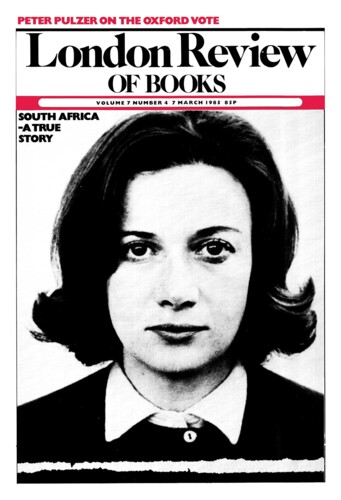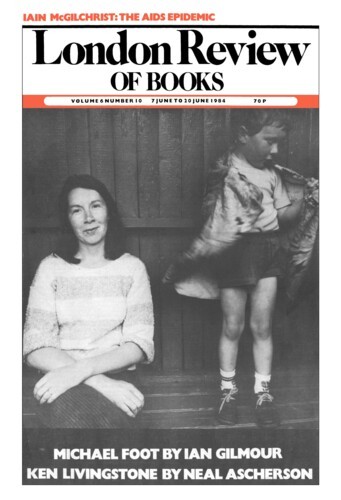Insolence
Blair Worden, 7 March 1985
In 1892 A.C. Benson published an essay which introduced the modern appreciation of Andrew Marvell. For more than two hundred years Marvell’s verse had shared with Metaphysical poetry a lowness of esteem which now seems puzzling. As the Cyclopaedia of English Literature explained in 1844, Marvel ‘is better known as a prose writer than a poet, and is still more celebrated as a patriotic member of parliament’. Benson rejected those priorities. He saw Marvell’s political involvement as a cause not for pride but for shame. ‘Few poets,’ he warned, ‘are of sufficiently rough and impenetrable fibre as to be able with impunity to mix with public affairs,’ for the ‘stream’ of ‘their inspiration’ is ‘apt to become sullied at the very source by the envious contact of the world’. To Marvell’s career as a Cromwellian civil servant and Whig pamphleteer ‘we owe the loss of a great English poet’. A reading of Marvell’s ‘peculiarly distasteful’ tract The Rehearsal Transpros’d brought home a grim lesson: ‘the singer of an April mood, who might have bloomed year after year in young and ardent hearts, is buried in the dust of politics, in the valley of dead bones.’



